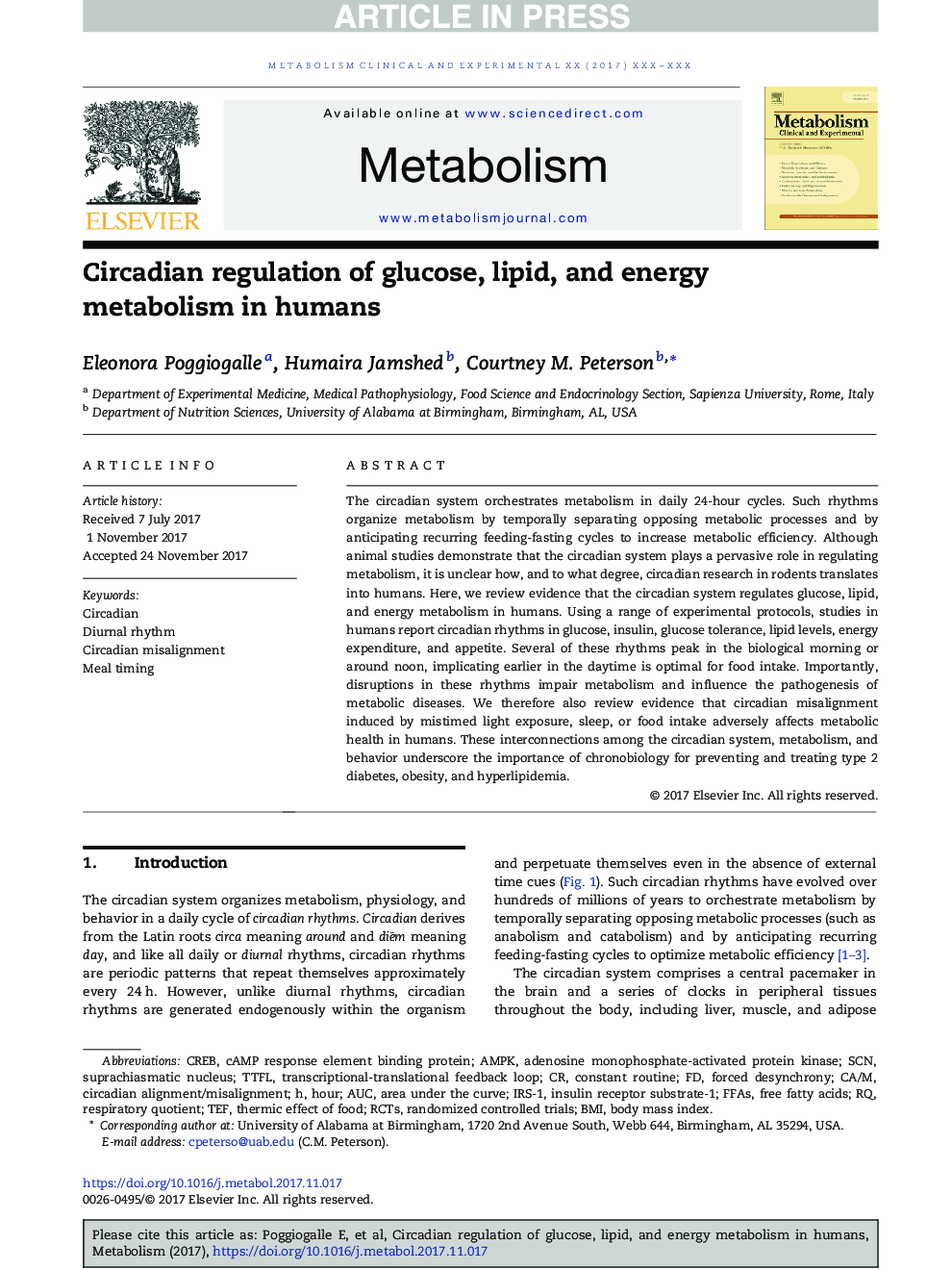| Article ID | Journal | Published Year | Pages | File Type |
|---|---|---|---|---|
| 8632933 | Metabolism | 2018 | 17 Pages |
Abstract
The circadian system orchestrates metabolism in daily 24-hour cycles. Such rhythms organize metabolism by temporally separating opposing metabolic processes and by anticipating recurring feeding-fasting cycles to increase metabolic efficiency. Although animal studies demonstrate that the circadian system plays a pervasive role in regulating metabolism, it is unclear how, and to what degree, circadian research in rodents translates into humans. Here, we review evidence that the circadian system regulates glucose, lipid, and energy metabolism in humans. Using a range of experimental protocols, studies in humans report circadian rhythms in glucose, insulin, glucose tolerance, lipid levels, energy expenditure, and appetite. Several of these rhythms peak in the biological morning or around noon, implicating earlier in the daytime is optimal for food intake. Importantly, disruptions in these rhythms impair metabolism and influence the pathogenesis of metabolic diseases. We therefore also review evidence that circadian misalignment induced by mistimed light exposure, sleep, or food intake adversely affects metabolic health in humans. These interconnections among the circadian system, metabolism, and behavior underscore the importance of chronobiology for preventing and treating type 2 diabetes, obesity, and hyperlipidemia.
Keywords
CREBTTFLRCTsTEFFFAsIRS-1SCNAMPKAUCRandomized controlled trialsthermic effect of foodforced desynchronyFree fatty acidsinsulin receptor substrate-1circadianConstant routineDiurnal rhythmMeal timingHourRespiratory quotientbody mass indexBMIarea under the curveCircadian misalignmentSuprachiasmatic nucleuscAMP response element binding proteinadenosine monophosphate-activated protein kinase
Related Topics
Life Sciences
Biochemistry, Genetics and Molecular Biology
Endocrinology
Authors
Eleonora Poggiogalle, Humaira Jamshed, Courtney M. Peterson,
